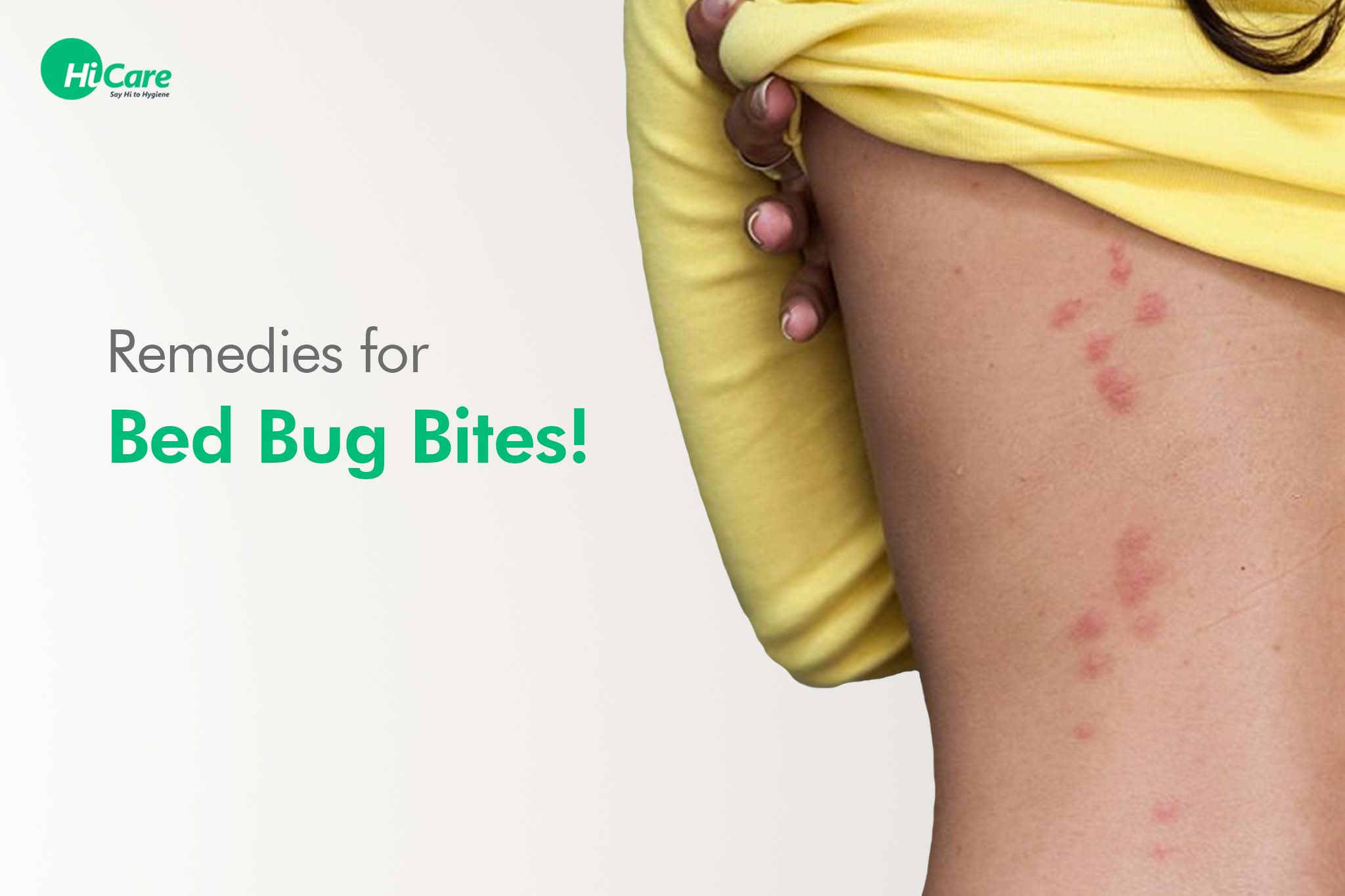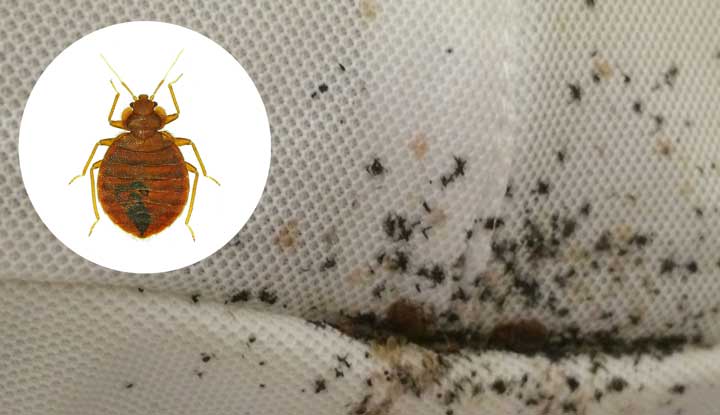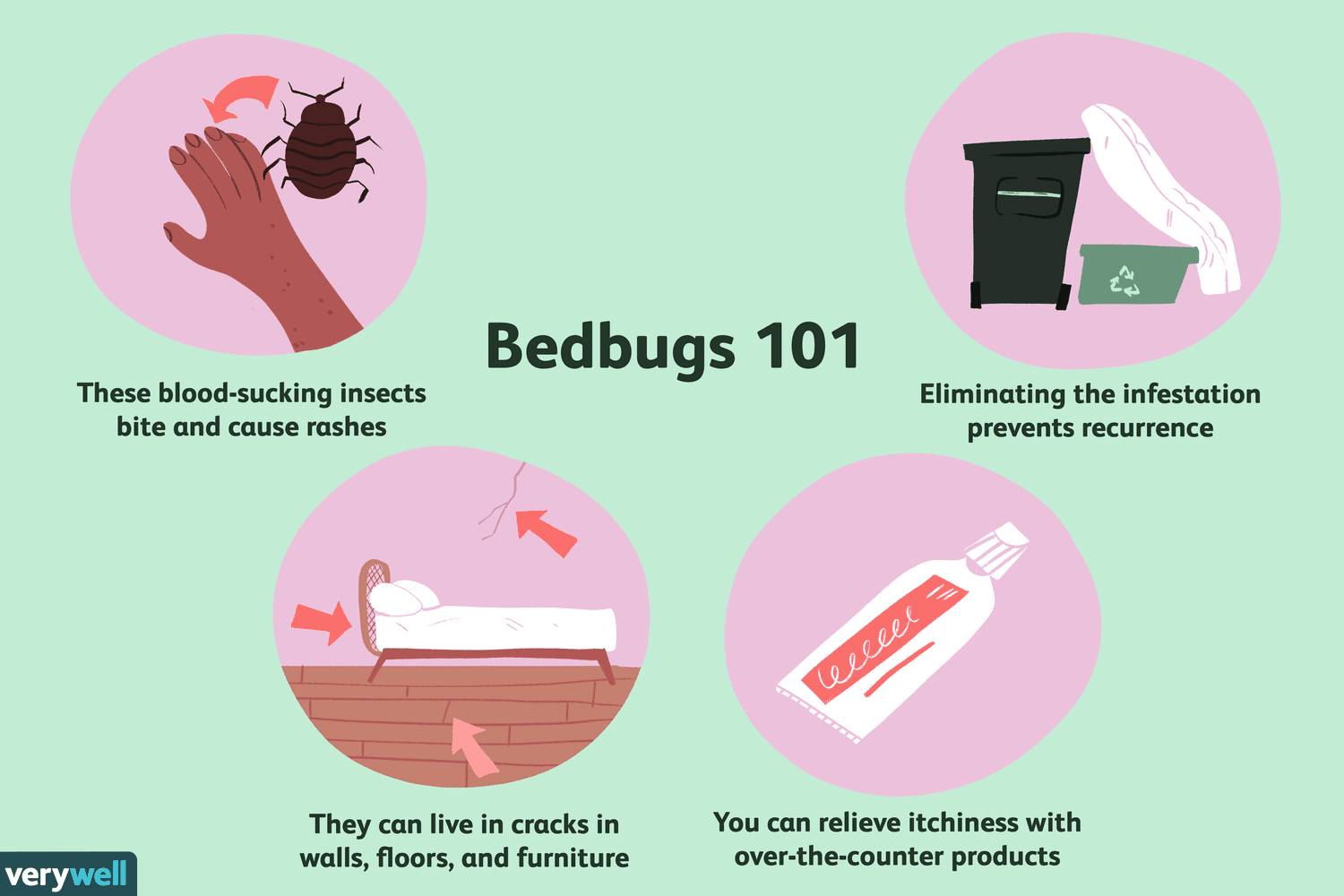To treat bed bug bites, wash the affected area with soap and water and apply an anti-itch cream or natural remedy like aloe vera. Taking an antihistamine can also help reduce itching and swelling.
Discovering a bed bug bite can be a distressing experience, marked by itching, redness, and discomfort. As nocturnal pests, bed bugs feed on human blood while their host sleeps, leaving behind a trail of irritating bites. Prompt attention to these bites is crucial for comfort and to reduce the risk of infection.
Fortunately, treating bed bug bites typically involves simple home remedies and over-the-counter solutions. It’s essential to address the infestation itself to prevent further bites. Ensuring a clean sleeping environment and seeking professional pest control services can help eliminate these unwelcome intruders. Stay alert for signs of bed bugs and act swiftly to maintain a bug-free zone for your peace of mind.
The Unwelcome Guests: Bed Bugs
Imagine waking up to find tiny, itchy red bites on your skin. You’ve just met the unwelcome guests – bed bugs. These tiny pests sneak into your home unnoticed. They hide during the day. They come out at night to feed on your blood.
Identifying Bed Bug Bites
An itchy red spot on your skin might be a bed bug bite. These bites often appear in a line or a small cluster. The bites look swollen and red. They itch more than mosquito bites.
- Bites usually on exposed skin while you sleep
- Red, itchy bumps appear upon waking
- Found on face, neck, arms, and hands
The Life Cycle Of Bed Bugs
Understanding the life cycle of bed bugs helps stop an infestation. There are five stages before becoming an adult. They shed their skin at each stage.
| Stage | Duration |
|---|---|
| Egg | 1 week |
| Nymph (5 stages) | 5-8 weeks |
| Adult | Can live up to a year |
Adult females lay eggs in hidden places. Eggs hatch in about a week. Nymphs need a blood meal to grow. They become adults in about a month.
Immediate Steps After A Bite
A bed bug bite can be an itchy nightmare. It’s important to act quickly. This can reduce itching and prevent infection. Here’s what you should do immediately after you notice a bite.
First Aid For Bed Bug Bites
- Wash the affected area with soap and water. This offers relief and cleans the skin.
- Apply an ice pack to reduce swelling and soothe the itch.
- Consider over-the-counter creams or lotions. Options include corticosteroid or antihistamine creams.
- Use an antiseptic cream or lotion if the skin breaks to prevent infection.
- Avoid scratching the bite. This is tough but necessary. Scratching can lead to infection.
When To Seek Medical Attention
Most bed bug bites resolve on their own, but there are exceptions. Here are signs you need a doctor:
| Symptom | Action |
|---|---|
| The bite swells dramatically | See a doctor |
| The bite becomes painful | Visit a clinic |
| Signs of infection like redness, warmth, or pus | Seek medical help |
| Allergic reactions such as difficulty breathing, hives, or dizziness | Get emergency care |
Home Remedies That Soothe
Bed bug bites plague the skin, leaving most searching for relief. Home remedies present a convenient way to ease discomfort. Let’s explore how natural solutions bring calm to irritated skin.
Natural Topical Applications
Cooling with ice packs can reduce swelling and numb the area. Always wrap ice in cloth to prevent skin damage.
- Baking soda and water make a paste that eases itchiness. Apply, let dry, then wash off.
- Lemon juice and witch hazel, applied with cotton, reduce inflammation due to their natural astringent properties.
- Aloe vera gel soothes rash and swelling. It also speeds up healing.
Herbal Treatments And Their Efficacy
| Herb | Use | Efficacy |
|---|---|---|
| Tea Tree Oil | Apply diluted oil to bites | Antimicrobial and anti-inflammatory |
| Calendula Cream | Spread gently on bites | Reduces discomfort and heals skin |
| Peppermint Oil | Dab onto affected area | Natural analgesic and antiseptic |
Always patch test herbal treatments to avoid allergic reactions.

Credit: hicare.in
Over-the-counter Solutions
Bed bugs bites can be itchy and uncomfortable. Thankfully, quick relief is often just a trip to the pharmacy away. Numerous over-the-counter solutions exist to ease the discomfort caused by these pesky bites. From antihistamines to corticosteroid creams, let’s explore some of the readily available remedies that can help soothe your skin and reduce inflammation.
Antihistamines And Analgesics
When a bed bug bites, it triggers an allergic reaction, leading to itchiness. Antihistamines, both oral and topical, can help calm this reaction. They reduce itching and may even help you sleep better. For effective use, follow the instructions on the package. Analgesics, on the other hand, address pain relief. Common over-the-counter options like acetaminophen or ibuprofen can alleviate discomfort from bites. Remember, do not exceed the recommended dosage.
Corticosteroid Creams And Lotions
For more severe cases, corticosteroid creams and lotions can be an excellent option. These products reduce inflammation and can bring relief to swollen, itchy bites. Apply a small amount to the affected area as directed. A low-concentration hydrocortisone cream is often recommended for mild reactions and is available without a prescription. If symptoms persist or worsen, consult a healthcare professional.
Professional Treatments
Professional treatments prove essential when home remedies don’t suffice in dealing with bed bug bites. These medical interventions not only address the symptoms but also reduce the risk of secondary infections. Let’s explore the professional avenues for relieving the discomfort caused by these pesky bites.
Consulting A Dermatologist
Seeking assistance from a dermatologist can be a game-changer. A skin specialist will assess the bites, recommend treatments tailored to your needs, and may also suggest preventive measures. Prompt consultation often leads to faster recovery and minimized scarring.
Prescription Medications For Bites
Prescribed medications are often more potent than over-the-counter options. After a thorough evaluation, a physician might prescribe the following:
- Antihistamines: to lessen itching and allergic reactions.
- Topical corticosteroids: to reduce inflammation and irritation.
- Antibiotics: if an infection develops from scratching the bites.
Remember to follow the doctor’s instructions closely and complete the full course of any prescribed medication.

Credit: my.clevelandclinic.org
Preventing Future Bites
Waking up to bites can ruin anyone’s day and prevent restful sleep. Understanding how to stop future bites is essential for a peaceful life. Read on for effective steps to keep those pesky bugs at bay.
Insect Repellents And Their Use
Insect repellents can be a bed bug barrier. Choose EPA-registered products carefully. Here’s how to maximize their benefits:
- Read labels to ensure suitability for bed bugs.
- Apply on bedding borders, not directly on skin.
- Use as directed, with caution.
Bed Bug-proofing Your Sleep Area
Making your sleeping area unfriendly to bed bugs takes some effort. Try these tips:
- Encase mattresses and pillows with bed bug protectors.
- Regular inspection of bed frames and headboards is crucial.
- Keep the sleeping area clutter-free.
- Maintain a safe distance between the bed and the walls.
- Seal cracks and crevices where bed bugs can hide.
Remember, persistence is key. Frequent cleaning and the use of mattress protectors can greatly reduce the risk of future bites. Stay vigilant, and enjoy a bed bug-free environment.
Bed Bug Eradication Strategies
Waking up to bed bug bites can be a nightmare. These tiny pests are expert hitchhikers and multiply quickly. Once they settle in, it’s all hands on deck to clear your home of these nocturnal nuisances. Roll up your sleeves – it’s time to dive into effective strategies to say goodbye to bed bugs for good.
DIY Methods To Eliminate Bed Bugs
Homemade remedies and over-the-counter solutions often come to the rescue first in the DIY bed bug battle:
- Heat Treatment: Wash bedding and clothes in hot water and dry them on the highest dryer setting.
- Vacuuming: Regularly vacuum your home, especially around bed frames and furniture.
- Sealing Cracks: Seal any cracks in your walls or floors to cut off hiding spots.
- Diatomaceous Earth: Apply food-grade diatomaceous earth around affected areas to dehydrate the bugs.
Note: Always test DIY methods in small areas first to avoid damage.
Hiring A Pest Control Professional
When bed bugs persist despite your efforts, it’s time to call in the cavalry. Professional exterminators have the tools and expertise to tackle infestations thoroughly. They’ll do an inspection, treat infested areas, and follow up to ensure those pesky bugs are gone for good.
| Reasons to Hire a Professional | Benefits |
|---|---|
| Experience with bed bug extermination | Effective and thorough removal |
| Access to professional-grade treatments | Better long-term results |
| Knowledge of bed bug life cycle | Targeted treatment strategies |
Don’t hesitate to seek help from pest control services to reclaim your space.

Credit: www.healthline.com
Understanding And Avoiding Reinfestation
Understanding and Avoiding Reinfestation is crucial after dealing with bed bug bites. Getting rid of the bites is only half the battle. Ensuring these pests don’t return is key to a peaceful, itch-free existence. Let’s explore strategies to keep bed bugs at bay and prevent them from making a dreaded comeback.
Tips For Travelers
One of the most common ways bed bugs spread is through travel. Staying vigilant helps protect your space at home.
- Inspect your accommodations: Check the mattress seams, headboard, and box springs.
- Keep luggage off the floor: Use a luggage rack, and consider a bed bug-proof luggage cover.
- Seal and separate: Keep your belongings in sealed plastic bags.
- Hot wash on return: Immediately launder your clothes in hot water after travel.
- Vacuum your suitcase: Do this as soon as you get home to catch any hitchhikers.
Long-term Bed Bug Management Tips
Maintaining a bed bug-free home is a continuous process. Here’s how to keep them out for good.
| Tip | Implementation |
|---|---|
| Regular Inspections | Check all potential hiding places every few weeks. |
| Use Protective Covers | Encase your mattresses and pillows in bed bug-proof covers. |
| Reduce Clutter | Minimize hiding spots by keeping your space tidy and minimalistic. |
| Professional Help | If you spot bed bugs, contact a pest control service immediately. |
| Monitor Regularly | Install bed bug traps around your bed and check them regularly. |
Frequently Asked Questions For How To Get Rid Of Bed Bugs Bites?
What Causes Bed Bug Bites To Itch?
Bed bug bites itch due to your body’s allergic reaction to the bug’s saliva. Histamines released by your immune system lead to itching. Keeping bites clean and using anti-itch creams can help alleviate symptoms.
Can Bed Bug Bites Spread If Scratched?
Scratching bed bug bites can cause them to become more irritated and possibly infected. Breaking the skin may lead to secondary infections, but the bites themselves don’t spread. Avoid scratching and cover bites with a plaster if necessary.
How To Identify Bites From Bed Bugs?
Bed bug bites typically appear as red, itchy welts in a line or cluster. They often occur on exposed skin during sleep, such as the face, neck, and arms. Unlike mosquito bites, bed bug bites are closely grouped and may persist longer.
What Are Home Remedies For Bed Bug Bites?
Cool compresses and aloe vera can soothe the itching from bed bug bites. Baking soda paste or apple cider vinegar are also popular home remedies. Apply them to the bites to reduce inflammation and discomfort.
Are Bed Bug Bites and Bed Bugs on Sheets Related? How Can I Treat Both?
Yes, bed bug bites and bed bugs on sheets are related. To treat both, you can start by washing and drying all bedding on high heat. Use a vacuum to clean your mattress and bed frame. To completely get rid of bed bugs, it’s best to call a professional pest control service.
Conclusion
Bed bug bites can cause discomfort and stress, but effective solutions exist. Employ preventive measures, seek professional help, and utilize natural remedies to combat these pests. Remember, consistency is key in keeping your home bed bug-free. With the right strategies, you can enjoy the peace of mind that comes with a bite-free environment.
Related posts:

I’m MD Tanvir, and I bring years of expertise gained from working closely with pest control companies to the forefront. My journey in the industry has inspired me to launch Bug Battler, a platform aimed at equipping people with the know-how to combat pests autonomously. Through Bug Battler, I aim to empower individuals with practical insights to tackle pest infestations effectively.

